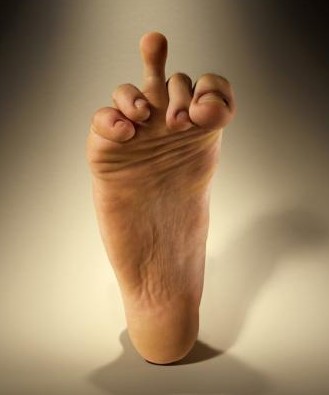

 字體:小 中 大
字體:小 中 大 |
|
|
|
| 2010/01/20 06:37:39瀏覽922|回應8|推薦21 | |
 “Western mental health discourse introduces core components of Western culture, including a theory of human nature, a definition of personhood, a sense of time and memory, and a source of moral authority. NONE OF THIS IS UNIVERSAL." Derek Summerfield 這個全球化的時代, 不但機器、制度、時尚、網際網路為西方包山包海通通標準化, 連對神經病的解釋權、定義權, 也被米國人獨攬、一把通吃。 是啊, 全球“神經病”米國化(depression 憂鬱,ADHD 過動症,schizophrenia 精神分裂症,PTSD 創傷後壓力症候群, Anorexia 厭食症....)。米國社會的心理疾病,歸因於長久價值崩潰、宗教精神解體、機械數字凌駕一切、 無止無盡地追求物質需求、 感官享樂後所延伸出。 這種社會發展出來的精神病療法,強加於不同文化的他者, 已經幼稚無比, 更可怖的是, 利用商業媒體力量,無所不用其極, 將神經病的定義強加於他國(人), 無病變有病, 是另一場帝國主義式的全球災難。  把科學當宗教的社會, 篤信腦神經生化機制裡有答案。國際製藥大廠宣稱發明解藥,忽視在地文化、風俗、傳統醫療的差異,害死人命不說,再來媒體廣告全球洗腦,買通╱勸誘╱遊說當地科學家、政府、醫療人員, 扭曲隱瞞科學數據, 遊走法律邊緣,同步配合影歌視強力促銷,製造輸出各式各樣“神經病”。最好人人把抗憂鬱劑、精神分裂藥物、過動兒藥物。。。。當成口香糖來嚼,製藥大廠大開慶功宴,在家躺著收錢。 說家太普通了, 應該說皇宮、城堡, 出入直升機代步, 銅牆鐵壁, 有私人警衛部隊巡邏。 哦, 也不對, 太落伍了, 應是最先進的高科技保全 - 光、 電、 雷射電子紅外線掃描、 錄影照相。。。。 把科學當宗教的社會, 篤信腦神經生化機制裡有答案。國際製藥大廠宣稱發明解藥,忽視在地文化、風俗、傳統醫療的差異,害死人命不說,再來媒體廣告全球洗腦,買通╱勸誘╱遊說當地科學家、政府、醫療人員, 扭曲隱瞞科學數據, 遊走法律邊緣,同步配合影歌視強力促銷,製造輸出各式各樣“神經病”。最好人人把抗憂鬱劑、精神分裂藥物、過動兒藥物。。。。當成口香糖來嚼,製藥大廠大開慶功宴,在家躺著收錢。 說家太普通了, 應該說皇宮、城堡, 出入直升機代步, 銅牆鐵壁, 有私人警衛部隊巡邏。 哦, 也不對, 太落伍了, 應是最先進的高科技保全 - 光、 電、 雷射電子紅外線掃描、 錄影照相。。。。 (很多藥物有上癮性。 故意製造出來的?) “The danger is it (homogenizing the mind) happens so quickly.... we disconnect their culture from their traditional ways of healing, their traditional ways understanding the minds....We flatten the human pysche around the world....” 我無意爭辯 MIND 主觀上(文化、傳統。。)、客觀上(神經科學。。)的 boundary 在哪。 只希望,知道這本新書的人能有機會 專心地 翻一翻這本書。了解一下從傳統精神醫療╱文化╱人類學的角度所關注的 Mind╱Mental Illness 是甚麼。 不同的歷史片段, 對 Mental Illness 甚至還有不同的認知。將活生生的人從文化、歷史、傳統、自然、土地的context中硬生生抽離, 用西方價值崩潰、宗教精神解體後, 所發展出來的 therapy or psychopharmaceuticals packages, 將全人類通通納入其版圖。 是很嚇人的事。 簡介: Author reveals that the most devastating consequence of the spread of American culture has not been their golden arches (賣當勞)or their bomb craters(全世界丟炸彈留下的坑洞)but their bulldozing (米帝的四處恫嚇威脅)of the human psyche itself: American are in the process of homogenizing the way the world goes mad (同化、標準化全世界“神經病”狀態). America has been the world leader in generating new mental health treatments and modern theories of the human psyche. Americans export their psychopharmaceuticals packages with the certainty that American biomedical knowledge will relieve the suffering and stigma of mental illness. American categorize disorders, thereby defining mental illness and health, and then parade these seemingly scientific certainties in front of the world. The blowback from these efforts is just now coming to light: It turns out that Americans have not only been changing the way the world talks about and treats mental illness - Americans have been changing the mental illnesses themselves. For millennia, local beliefs in different cultures have shaped the experience of mental illness into endless varieties. Crazy Like Us documents how American interventions(米帝介入) have discounted and worked to change those indigenous beliefs, often at a dizzying rate. Over the last decades, mental illnesses popularized in America have been spreading across the globe with the speed of contagious diseases. Ethan Watters travels from China to Tanzania to bring home the unsettling conclusion that THE VIRUS IS AMERICAN (米國人是最大隻病毒): As Americans introduce Americanized ways of treating mental illness, they are in fact spreading the diseases. (治療"神經病"的, 事實上是去散播"神經病") In post-tsunami Sri Lanka, Watters reports on the Western trauma counselors who, in their rush to help, inadvertently trampled local expressions of grief, suffering, and healing. In Hong Kong, he retraces the last steps of the teenager whose death sparked an epidemic of the American version of anorexia nervosa. Watters reveals the truth about a multi-million dollar campaign by one of the world’s biggest drug companies to change the Japanese experience of depression (改變日本人對憂鬱症的經驗認知) - literally marketing the disease along with the drug. But the book is not just about the damage Americans have caused in faraway places. Looking at American impact on the psyches of people in other cultures is a gut check, a way of forcing American public to take a fresh look at American beliefs about mental health and healing. When Americans examine selves assumptions from a farther shore, Americans begin to understand how American own culture constantly shapes and sometimes creates the mental illnesses of American time. By setting aside American role as the world’s therapist, Americans may come to accept that Americans have as much to learn from other cultures’ beliefs about the mind as Americans have to teach. Chap1. The Rise of Anorexia in Hong Kong Chap2. The Wave That Brought PTD to Sri Lanka Chap3. The Shifting Mask of Schizophrenia in Zanzibar Chap4. The Mega-Marketing of Depression in Japan Conclusion. The Global Economic Crsis and the Future of Mental Illness http://books.simonandschuster.com/Crazy-Like-Us/Ethan-Watters/9781416587088 更多米國政府和跨國大公司的醜陋真面目。 大部份的正常人都麻木了, 包括我。 Economic Hit Man , Food Inc., Consuming Kids, the Corporation, Fast Food Nation, sweatshop in the third world。。。。       |
|
| ( 時事評論|國際 ) |










